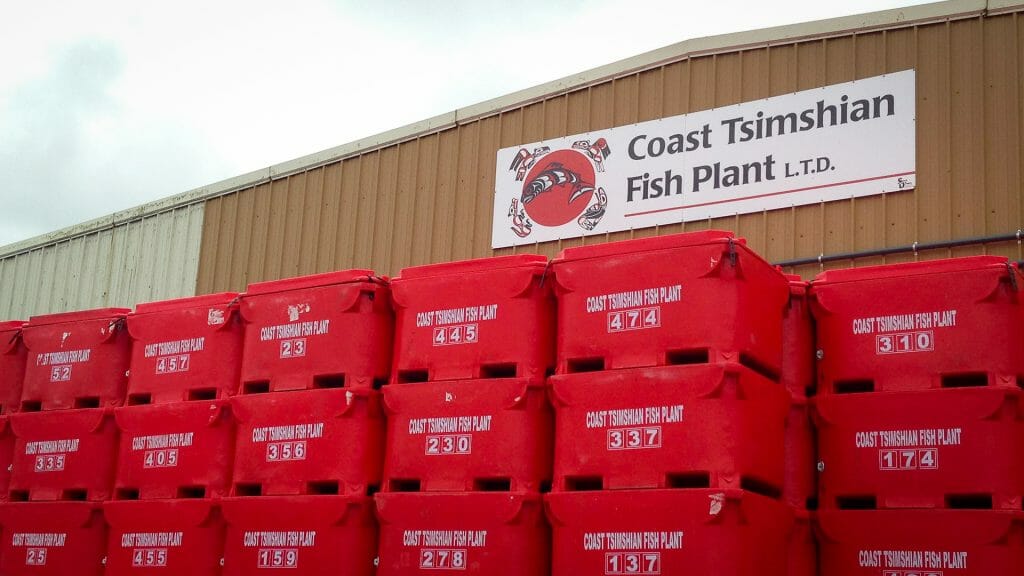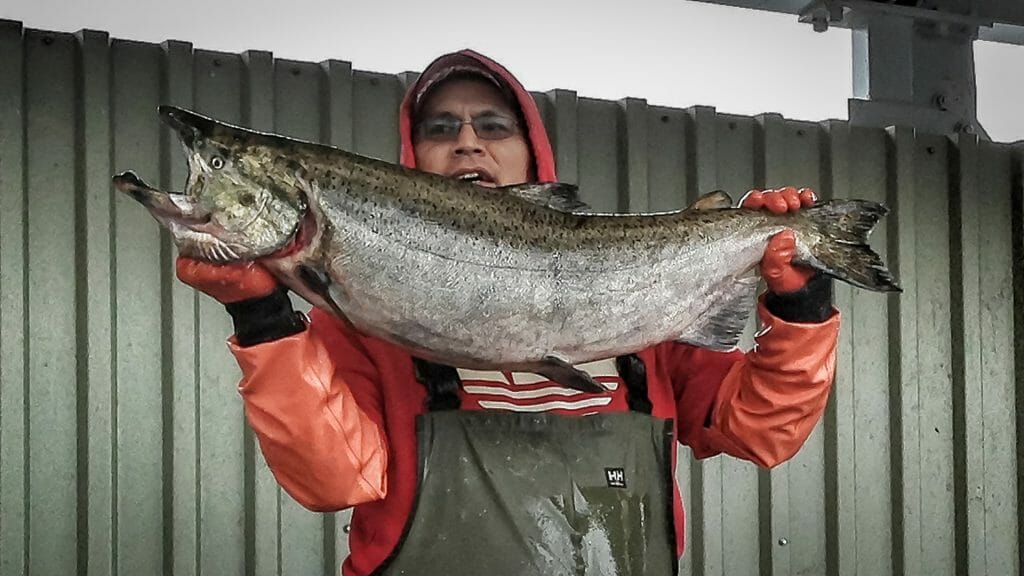Estimated Reading time

2 Mins
Coast Tsimshian Seafood Major Employer for Lax Kw’alaams

Coast Tsimshian Seafood, owned-and-operated by the Lax Kw’alaams Nation, is a major economic driver in the nation’s community. The processing plant employs 100 people from the community full-time, and during peak season employment reaches 170.

The Lax Kw’alaams seafood processing plant was recently highlighted in a CBC article about the First Nation’s economic development endeavours. In the article John Helin, mayor of Lax Kw’alaams says the operation is significant for his community. “It’s huge for the members,” he says. “They got a steady income and they’re able to be proud.”
Coast Tsimshian Seafood follows resource management practices provided for within Tsimshian traditional law—sustainability that dates back more than 15,000 years. The fish are wild and First Nation caught with a minimum seven generation planning cycle. Their salmon fisheries are also certified by the Marine Stewardship Council.
Mayer Helin credits Coast Tsimshian Seafood and the many other projects developed by the Lax Kw’alaams development corporation with significantly benefiting the community. The economic development corporation of Lax Kw’alaams has founded 10 companies in the past five years, helping to reduce community unemployment from 85 per cent to less than five per cent
The benefits of economic development are evident throughout the community. These include newly-paved roads and sidewalks, a leisure centre with a swimming pool and water slide, an elders’ centre, and a fitness centre. In addition, more than $4 million has been invested into housing renovations over the last 3 years, an $18 million school is being designed and an $11 million access road has been built.
The Lax Kw’alaams economic development corporation owns a real estate holding company, a water taxi company, a cedar mill, and a forestry business which is profiled in the CBC article.
